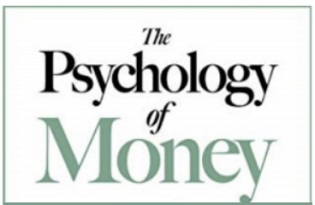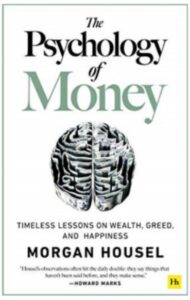
Everyone is a Genius!
 I hope (and pray) that your 2021 is already trending better than your 2020. Have you started thinking about what kind of content you want to read this year, and how that might drive positive change in your life? Well…
I hope (and pray) that your 2021 is already trending better than your 2020. Have you started thinking about what kind of content you want to read this year, and how that might drive positive change in your life? Well…
I recently finished my first book of 2021. It’s called The Psychology of Money by Morgan Housel. In general, personal finance books cover the topic of money through a purely process and mathematical lens. They tend to focus on the tactics one should use to reach their financial goals, the order in which they should deploy those tactics, and the importance of letting time do the rest. In a fresh approach, Morgan Housel tackles personal finance from the human behavior angle. The premise of this book is that doing well with money has more to do with how you behave than how smart you are. Housel provides a refreshing look into why we make the decisions we do with our money. There is most definitely a human and psychological variable in the equation.
The bottom line up front: This book could become a classic in the personal finance space. It has a strong focus on individual attitudes and behaviors that are within the reader’s control, and the book’s ideas and themes have broad application beyond personal finance. This book is not for people looking for advice on specific financial instruments, strategies, and the like, and will disappoint you if you are looking for that kind of information. (There are, however, plenty of books out there that cover those topics. Check out my personal finance book resources.)
Housel surmises that “A genius who loses control of their emotions can be a financial disaster. The opposite is also true. Ordinary folks with no financial education can be wealthy if they have a handful of behavioral skills that have nothing to do with formal measures of intelligence.” He illustrates his point by providing two strong contrasting examples. Consider Ronald James. Mr. James was a gas station attendant, janitor, and American philanthropist. Throughout his life, he lived frugally and amassed an $8 million net worth at the time of his death. The majority of his fortune was left to a local hospital and library. In contrast, take Richard Fuscone. Mr. Fuscone was a Harvard-educated Merrill Lynch executive. He borrowed heavily and spent lavishly, got hit by the 2008 financial crisis, declared bankruptcy. Ronald James was extremely patient while Richard Fuscone was greedy. That’s all it took to surmount the massive differences, educationally and professionally speaking, between the two. Their respective mindsets about money ultimately led to a huge disparity in their legacies.
In the end, knowing how to do something is just not enough. In many situations, you also need to battle against your internal emotional and mental turmoil as well. Here are two quotes I really enjoyed from the book:
- “We think about and are taught about money in ways that are too much like physics (with rules and laws) and not enough like psychology (with emotions and nuance).”
- “To grasp why people bury themselves in debt you don’t need to study interest rates; you need to study the history of greed, insecurity, and optimism.”
**Action:
- Read The Psychology of Money.
- From an investing perspective, we are going through one of the most bullish times in history. It has made investing look easy. Are you going to have the fortitude to stick it out in the next downturn? What are you doing to mentally prepare yourself for that?
- Are you closer to being a Mr. James, or do you take some risks like Mr. Fuscone? Let’s chat about it in our Three Action Thursday Facebook Group..**




